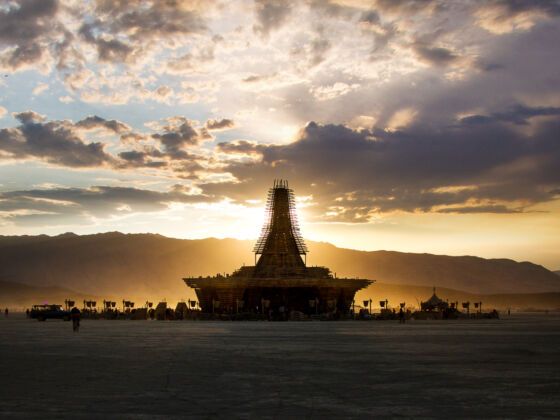WHEN I tell my husband “This is my last year for Burning Man,” he just rolls his eyes.
“No, really,” I say as I replace the batteries in my dusty EL-wire, “after this year, I’m done. I’ll spend the money going someplace else. Barcelona or Belize.”
“Uh-huh.”
“I swear.”
“Why even say it?” he asks. “You say that every year.”
